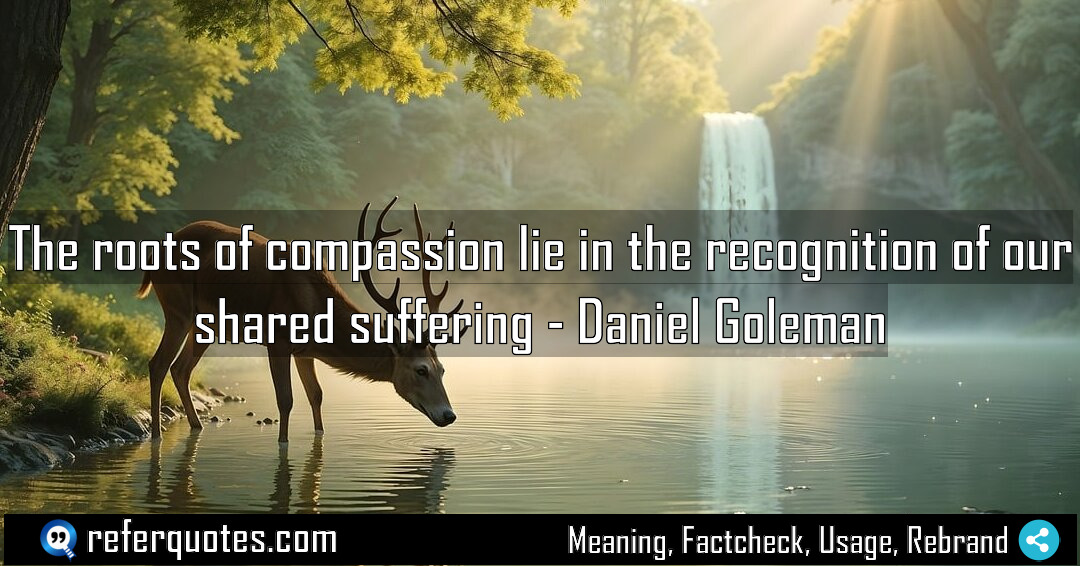You know, the roots of compassion lie in recognizing our shared suffering. It’s not about pity, but seeing your own struggles in others. This simple shift changes everything about how we connect.
Share Image Quote:Table of Contents
Meaning
At its core, this means compassion isn’t a superior act of charity. It’s an equalizing act of recognition. We’re able to care because we fundamentally understand what it’s like to hurt.
Explanation
Let me break this down for you. For years, I used to think compassion was about being a “good person.” You know, helping others from a place of strength. But Goleman flips that entirely. He’s saying the very engine of compassion is our own vulnerability. When you see someone anxious, or grieving, or failing, and you feel that tug on your heart? That’s not some abstract moral principle. That’s your own memory of suffering whispering, “I know that feeling.” It creates a bridge. It moves us from “I feel sorry for you” to “I feel with you.” And that, my friend, is a game-changer.
Quote Summary
| Context | Attributes |
|---|---|
| Original Language | English (3669) |
| Category | Spiritual (229) |
| Topics | compassion (36), connection (265), suffering (4) |
| Literary Style | poetic (635) |
| Emotion / Mood | empathetic (29), tender (51) |
| Overall Quote Score | 86 (262) |
Origin & Factcheck
This comes straight from Daniel Goleman’s 1988 book, The Meditative Mind: The Varieties of Meditative Experience, written in the United States. It’s a key point people often miss—this is pre-his massive “Emotional Intelligence” fame. You sometimes see this sentiment attributed to Buddhist texts, and while the philosophy is aligned, this specific phrasing is Goleman’s.
Attribution Summary
| Context | Attributes |
|---|---|
| Author | Daniel Goleman (125) |
| Source Type | Book (4032) |
| Source/Book Name | The Meditative Mind: The Varieties of Meditative Experience (60) |
| Origin Timeperiod | Modern (528) |
| Original Language | English (3669) |
| Authenticity | Verified (4032) |
Author Bio
Daniel Goleman is a psychologist and bestselling author whose journalism at The New York Times brought brain and behavior science to a wide audience. He earned a BA from Amherst and a PhD in psychology from Harvard, and studied in India on a Harvard fellowship. Goleman’s research and writing helped mainstream emotional intelligence, leadership competencies, attention, and contemplative science. He co-founded CASEL and a leading research consortium on EI at work. The Daniel Goleman book list includes Emotional Intelligence, Working with Emotional Intelligence, Primal Leadership, Social Intelligence, Focus, and Altered Traits.
| Official Website
Where is this quotation located?
| Quotation | The roots of compassion lie in the recognition of our shared suffering |
| Book Details | Publication Year/Date: 1977 (originally as The Varieties of Meditative Experience, revised 1988 as The Meditative Mind); ISBN: 9780874778335; Last Edition: Tarcher/Putnam 1988; Number of pages: 320. |
| Where is it? | Approximate page from 1988 edition, Chapter 6: The Mind in Balance |
